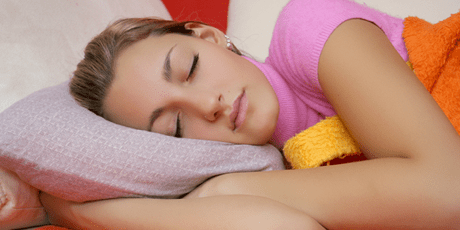Lights Out: How to Improve Sleep Hygiene and the Tie to Better Performance
Sleep hygiene is defined as a series of actions taken to ensure optimal sleep quality, therefore enhancing alertness and productivity during waking hours. Forming good sleep habits is beneficial for anyone looking to achieve a better overall quality of life. However, athletes who begin practicing good sleep hygiene can quickly notice a difference in their performance both physically and mentally, leading to an overall improvement in their game.
Is your young athlete having trouble falling asleep, even after an action packed day? Tossing and turning during the night? Experiencing drowsiness during the day? Then it may be time to reevaluate their bedtime habits. Below are a few small changes that can add up to a better night’s sleep.

Tips to Improve Sleep Hygiene
• Limit naps to 30 minutes- While napping does not make up for a poor night’s sleep, 20-30 minutes of shut eye can improve mood, alertness and performance. Any more than this can cause grogginess and sluggishness.
• Avoid stimulants close to bedtime- Cut off caffeine by mid-afternoon to avoid having trouble falling asleep and staying asleep.
• Exercise- As little as 10 minutes of aerobic exercise can have a positive impact on sleep quality. However, it is best to avoid strenuous workouts close to bedtime.
• Steer clear of foods that can be disruptive right before sleep- Foods that can be described as heavy, rich, fatty or fried as well as spicy dishes, citrus fruits, and carbonated drinks should not be consumed close to bedtime. These foods can cause indigestion, which may disrupt sleep.
• Ensure adequate exposure to natural light- Exposure to both sunlight during the day and darkness at night, helps to maintain a healthy sleep-wake cycle.
• Establish a relaxing bedtime routine- Practicing a regular bedtime routine helps the body wind down and recognize that it is time for bed. Try activities like taking warm shower or bath, reading a book or doing a few light stretches.
• Create a pleasant sleep environment- Bedrooms should be cool, between 60 and 67 degrees for optimal sleep. Make sure that pillows, mattresses and bedding are comfortable. Avoid bright light from lamps, cell phone and TV screens at bedtime, as they can negatively impact sleep quality. Consider purchasing blackout curtains, eye shades, ear plugs, “white noise” machines, humidifiers, fans and other devices that can make the bedroom more relaxing.
Source: sleepfoundation.org